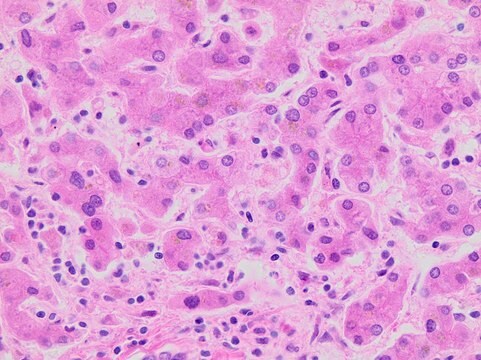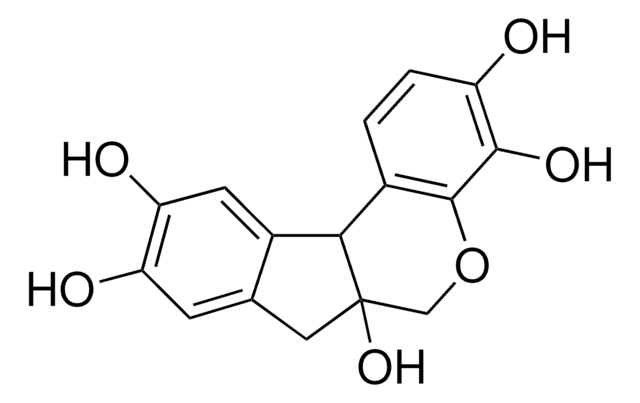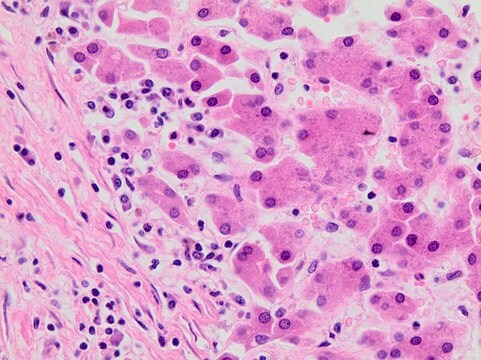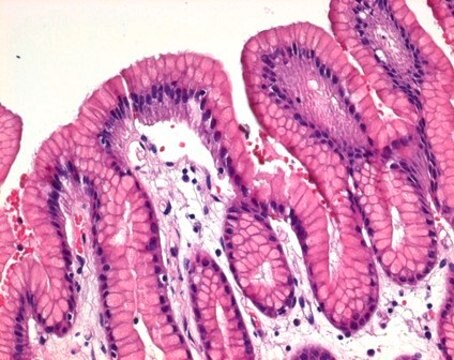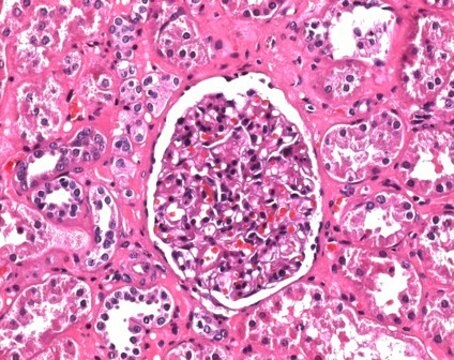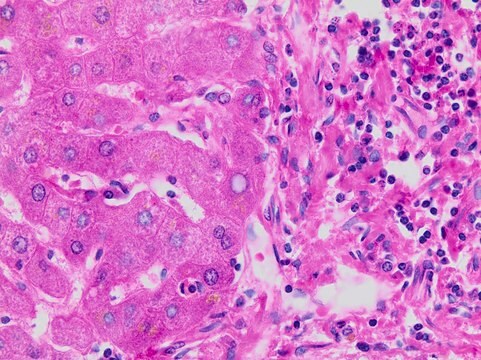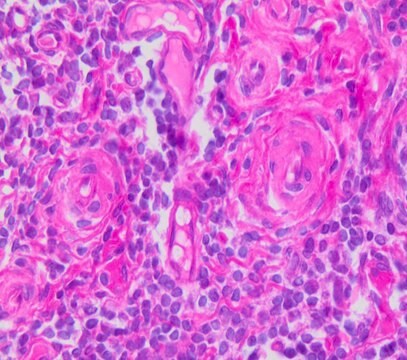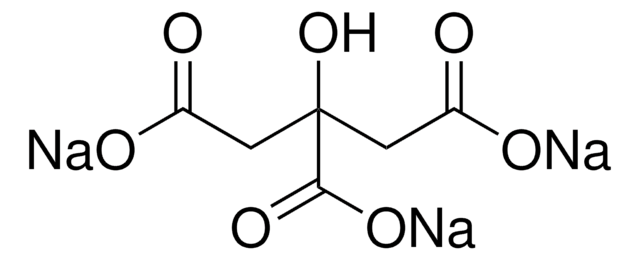Recommended Products
form
solution
Quality Level
shelf life
Expiry date on the label.
IVD
for in vitro diagnostic use
concentration
6 g/L
application(s)
hematology
histology
storage temp.
room temp
Looking for similar products? Visit Product Comparison Guide
Application
Gill formulation No. 3 may be used for cytology and/or histology as a progressive or regressive stain depending on length of staining time.. Used with hematoxylin and eosin staining.
Other Notes
6 g/L certified hematoxylin
Signal Word
Danger
Hazard Statements
Precautionary Statements
Hazard Classifications
Eye Dam. 1 - Met. Corr. 1 - STOT RE 2 Oral
Target Organs
Kidney
Storage Class Code
8A - Combustible corrosive hazardous materials
WGK
WGK 1
Certificates of Analysis (COA)
Search for Certificates of Analysis (COA) by entering the products Lot/Batch Number. Lot and Batch Numbers can be found on a product’s label following the words ‘Lot’ or ‘Batch’.
Already Own This Product?
Find documentation for the products that you have recently purchased in the Document Library.
Customers Also Viewed
Radhika Rao Arasala et al.
Stem cell research, 37, 101444-101444 (2019-05-11)
Human pluripotent stem cells (hPSCs) acquire changes at the genomic level upon proliferation and differentiation (Peterson and Loring, 2014). Studies from International Stem Cell Initiative and independent laboratories identified a copy number variant (CNV) in hES cell lines displaying a
LaTayia M Aaron-Brooks et al.
The Prostate, 79(9), 980-993 (2019-04-19)
Prostatic inflammation and various proinflammatory systemic comorbidities, such as diabetes and obesity are associated with human benign prostatic hyperplasia (BPH). There is a paucity of in vivo models reflecting specific aspects of BPH pathogenesis. Our aim was to investigate the
Olivia D Lara et al.
Scientific reports, 9(1), 17589-17589 (2019-11-28)
The prognostic and therapeutic value of the tumor microenvironment (TME) in various cancer types is of major interest. Characterization of the TME often relies on a small representative tissue sample. However, the adequacy of such a sample for assessing components
Alejandro Villar-Prados et al.
Molecular cancer therapeutics, 18(2), 421-436 (2018-11-14)
Systematic approaches for accurate repurposing of targeted therapies are needed. We developed and aimed to biologically validate our therapy predicting tool (TPT) for the repurposing of targeted therapies for specific tumor types by testing the role of Bromodomain and Extra-Terminal
Ido Sagi et al.
Cell stem cell, 25(3), 419-432 (2019-09-07)
Genomic imprinting is an epigenetic mechanism that results in parent-of-origin monoallelic expression of specific genes, which precludes uniparental development and underlies various diseases. Here, we explored molecular and developmental aspects of imprinting in humans by generating exclusively paternal human androgenetic
Our team of scientists has experience in all areas of research including Life Science, Material Science, Chemical Synthesis, Chromatography, Analytical and many others.
Contact Technical Service